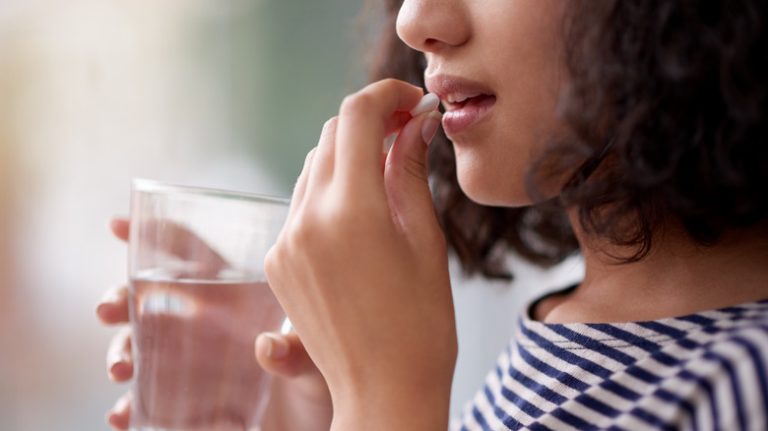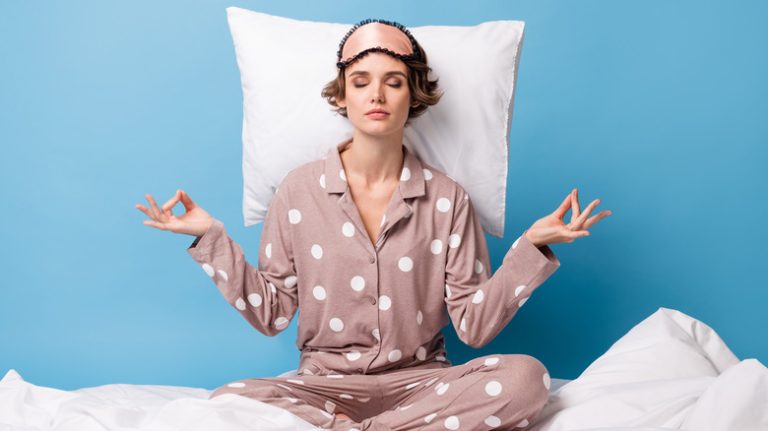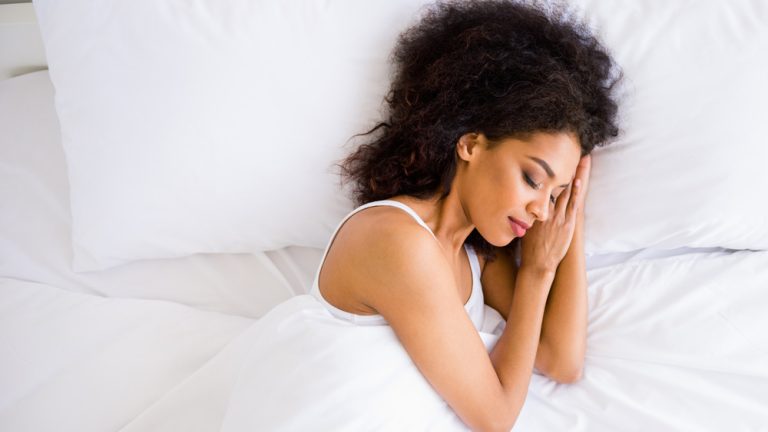Considering we sleep about a third of our lives away, it should really be no surprise that we’ve told ourselves plenty of myths and stories about sleep — from the Greek god of sleep Hypnos to the folklore character of the Sandman. But not all sleep myths are harmless fables. Some of the things we tell ourselves about sleep are misconceptions that can affect our health, according to a 2024 study published in Sleep Health.
In that study, researchers conducted an online search of articles in the popular press to identify common sleep myths. They then had a panel of sleep experts review and rate the harmfulness of these myths. About a quarter of the myths were ranked 4 or more out of a possible 5 for their potential impact on public health. After all, they noted, our beliefs can influence our behaviors. And if we’re operating under a fallacy, we’re likely to made wrong decisions. Read on to explore the truth about these common sleep myths — we think you’ll find it an eye-opening experience.
Myth: You can make up for lost sleep by sleep-binging over the weekend
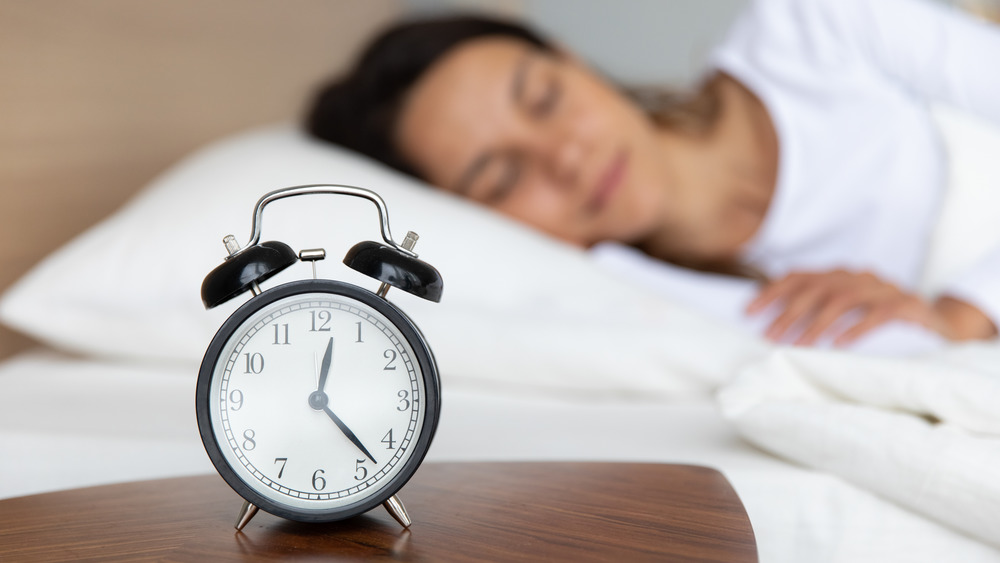
We all do it: Drag ourselves out of bed on a weekday morning, arrive bleary-eyed at work or school, stay up way too late that evening, and repeat. All because we know it will be Friday o’clock eventually, and we’ll have the blissful weekend to sleep in and catch up on the many zzzs we missed. Guess what? As good as it may feel to roll out of bed at noon on a Saturday, this behavior can contribute to chronic insomnia in the long term.
Your body operates on a 24-hour cycle, a kind of internal clock with no snooze button. Change your sleep and wake times, and you disrupt the daily rhythm, psychologist Seth J. Gillihan explained in an article for Psychology Today. Not only that but when you switch back to an earlier bedtime so you can wake up on time on Monday morning, you haven’t been awake for as many hours. Both these factors make it harder for your brain to know when it’s really time to fall asleep. Sticking to the same sleep and wake times seven days a week maximizes your changes of getting enough sleep.
Myth: Lack of sleep makes you tired, but it doesn’t affect your health
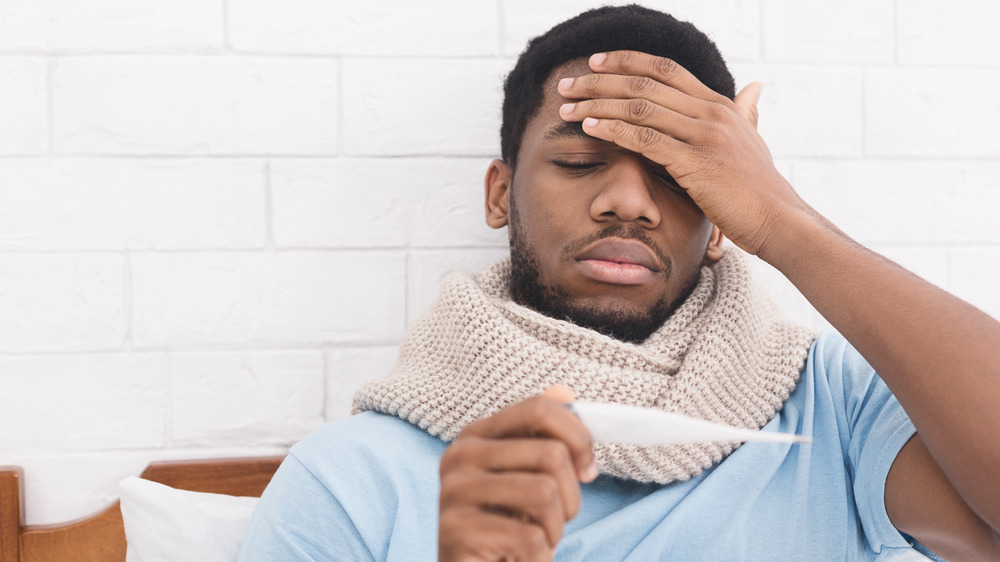
“One misconception about sleep that I encounter often is that the only consequence of not sleeping well is being sleepy the next day,” Raman Malhotra, a neurologist, sleep medicine specialist, and spokesperson for the American Academy of Sleep Medicine, told Health Digest. “Sleep can affect not only alertness, but behavior, mood, and other cognitive functions. Chronic sleep deprivation may cause other health effects such as diabetes, heart issues, and dementia.”
Conversely, there are plenty of bennies of getting enough sleep. A computer model of neural networks suggests that sleep helps our brain retain old memories while making new ones. In a survey of over a thousand adults with asthma, those short on sleep had more frequent asthma attacks. A 2024 study even linked interrupted sleep with a higher chance of cardiovascular disease.
Getting enough sleep is important for your immune system and your mental health. As part of a 2024 study in Sleep, researchers exposed volunteers to a common cold virus and found that people who got insufficient sleep had more than quadruple the chances of catching a cold, compared to people with adequate sleep. A later study in Frontiers in Psychology even found the quality of young men’s sleep a better predictor of mental health issues like depression than their diet or exercise habits.
Myth: Beauty sleep isn’t real
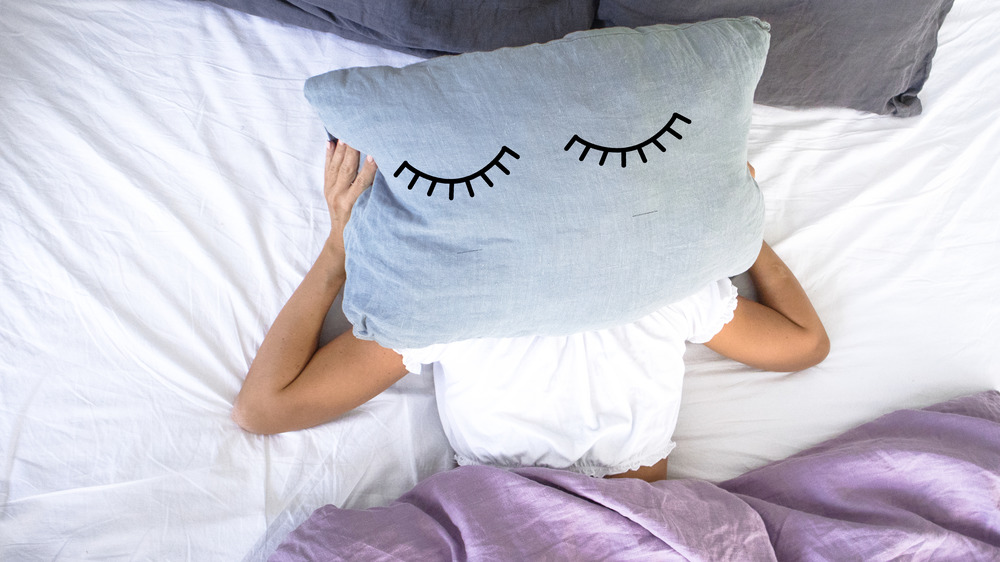
Shutterstock
It’s a myth that beauty sleep is a myth! Okay, that’s confusing. The point is, sleep actually does have an effect on your appearance, at least in terms of your skin. In a 2024 Clinical and Experimental Dermatology study, researchers categorized 60 women as poor-quality sleepers (those who slept fewer than five hours a night) or good-quality sleepers (those who averaged more than seven hours), they found that the poorer sleepers had more signs of skin aging.
Tests showed that the skin of the women who got more sleep was better able to recover from damage by things like sunburn and irritation. Self ratings showed that the good sleepers were more satisfied with their own appearance and attractiveness, compared to the group of women who slept under five hours per night. Lack of sleep seems to accelerate the aging of our skin, so, yes, beauty sleep is indeed real.
Myth: You should stay in bed until you fall asleep

Shutterstock
Is there anything worse than lying in bed wide awake, counting sheep, staring at the ceiling, or flipping your pillow over and over again to find the elusive cool side? The good news is that you don’t have to do any of that. If it takes you more than 20 to 30 minutes or so to doze off, you’re officially better off getting up. “It’s best to get out of bed and do a quiet activity, preferably in a different room,” said Raman Malhotra, a neurologist, sleep medicine specialist, and spokesperson for the American Academy of Sleep Medicine, speaking to Health Digest.
Now, this doesn’t mean you should hop out of bed and start working. You’ll want to avoid tackling anything that might stress you out. Instead, choose an activity that’s calming, like reading a book or listening to tranquil music. When you start to feel sleepy, get back into bed and resume your journey to dreamland — no sheep required.
Myth: A nightcap can help you sleep
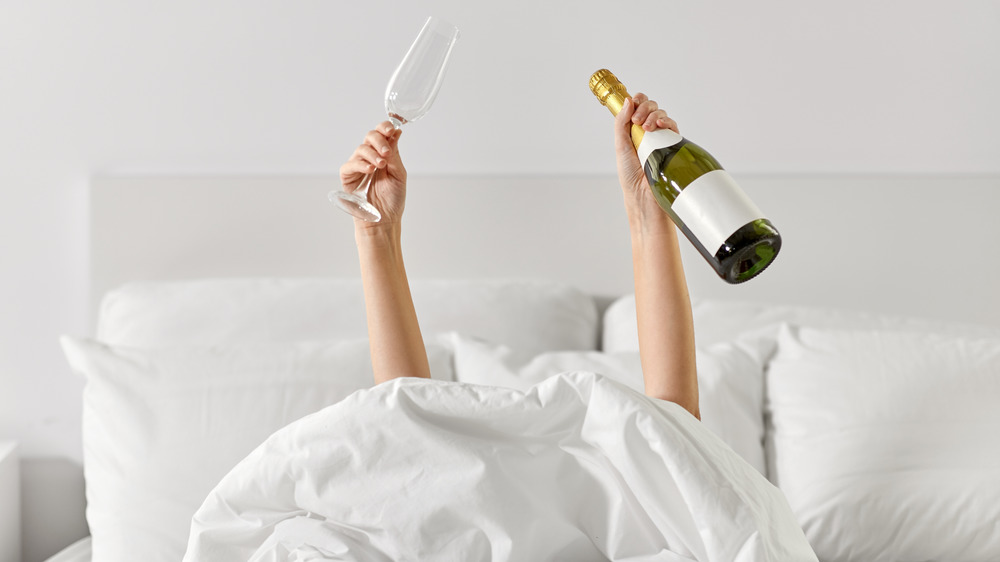
Shutterstock
No, we’re not talking about the kind you wear on your head (not that you’d wear one of those anyway, unless you’re auditioning to play Scrooge in your community theater’s production of A Christmas Carol). You’ll sleep better if you leave the boozy nightcap in the liquor cabinet.
A 2024 review of all known research on sleep and alcohol concluded that while alcohol reduced sleep latency — the time it takes to fall asleep — it also disrupts sleep later on. You’ll likely spend less time in the stage known as REM sleep, which is the part of sleep that includes dreaming. As explained by ScienceDaily, losing REM sleep can have a negative effect on your concentration, motor skills, and memory.
Alcohol also increases time spend in SWS (slow wave sleep), the deepest part of sleep, which may bring on snoring and poorer breathing. “Alcohol on the whole is not useful for improving a whole night’s sleep. Sleep may be deeper to start with, but then becomes disrupted,” said Chris Idzikowski, director of the Edinburgh Sleep Centre, to ScienceDaily.
Myth: Insomnia is rare
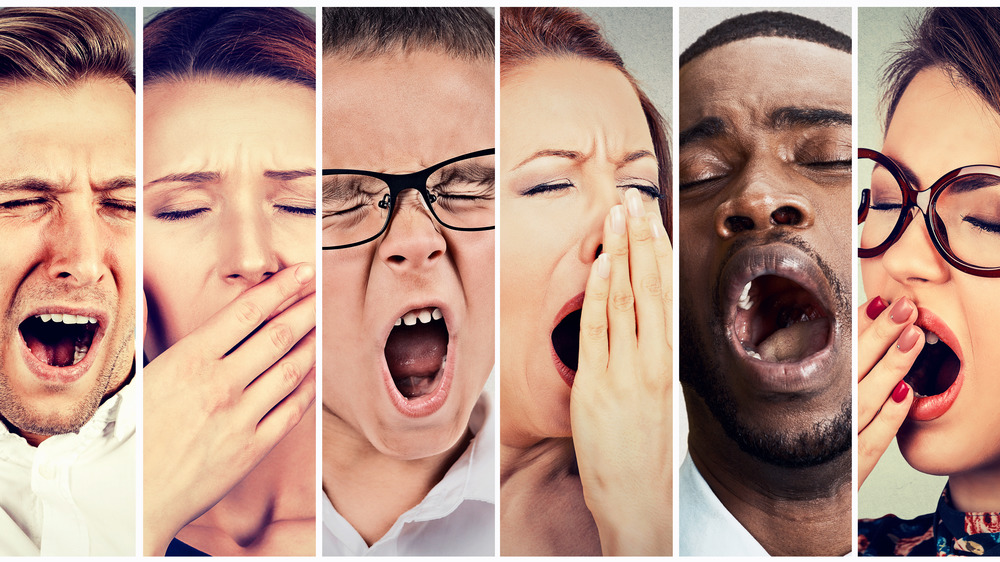
Shutterstock
When you’re wide awake in the wee hours of the morning, it can feel like you’re the only person on earth who can’t fall asleep. But a whopping 30 to 35 percent of adults have the sleep disorder, according to the American Academy of Sleep Medicine (AASM).
Insomnia can include difficulty staying asleep, waking up too early, as well as difficulty falling asleep. By definition, it includes daytime symptoms like daytime sleepiness and problems with attention, concentration, or memory. Poor performance at school or work, moodiness or irritability, or lack of energy or motivation are also common symptoms.
It’s possible to have short-term insomnia, which can last up to three months, or chronic (long-term) insomnia, lasting over three months. “Try to follow good sleep hygiene, and if the problem does not go away in three months, talk to a sleep physician,” the AASM advised. “A board-certified sleep physician can diagnose insomnia and work with the sleep team to treat it.”
Myth: If you can’t sleep, you need sleeping pills
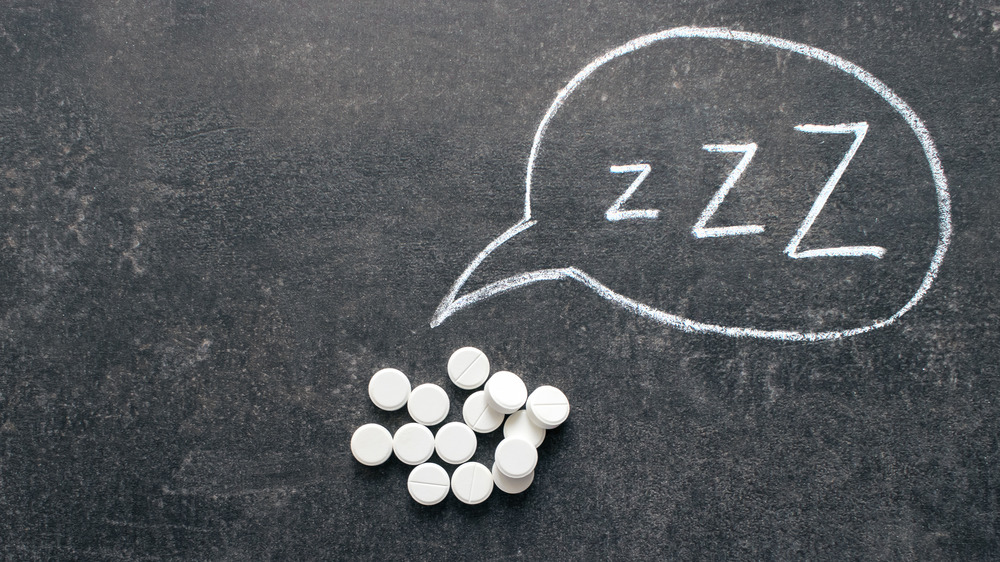
Shutterstock
There are medications approved to treat insomnia, it’s true. But like all medicines, they come with certain risks, according the U.S. Food and Drug Administration. You should talk these risks over carefully with your doctor. The good news is that before turning to meds, you have lots of other options to try. A good starting point is to follow healthy sleep habits, also known as practicing good sleep hygiene.
According to the American Academy of Sleep Medicine (AASM), key sleep-promoting practices include: getting seven hours of sleep per night, waking up and going to bed at the same time each day, forming a calming bedtime routine (e.g., a warm bath or meditation), putting away the screens before hopping into bed, and more. It can also help to keep a two-week sleep diary to identify the factors that may be interfering with your sleep, advised the AASM.
Myth: Snoring is an annoyance, but it’s harmless
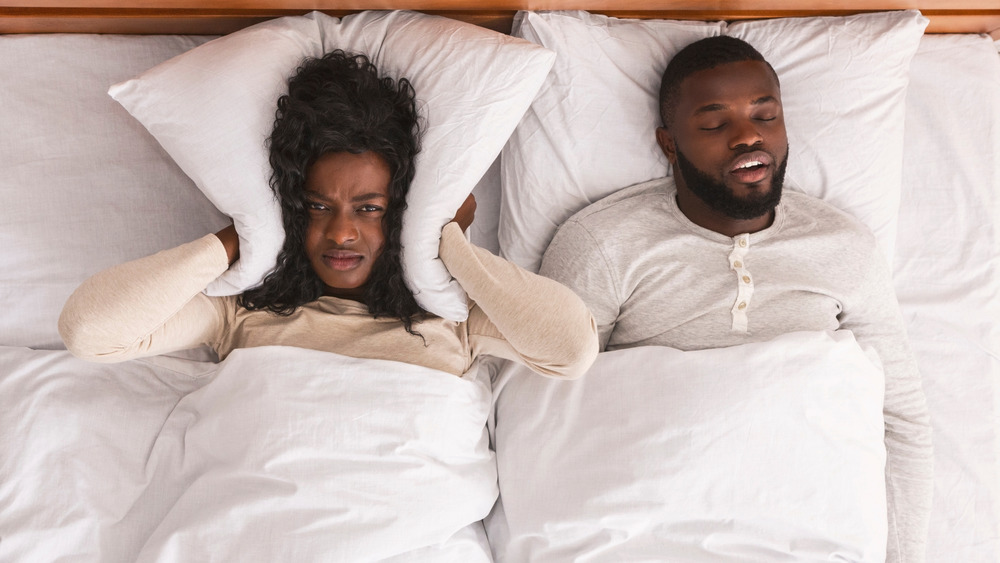
Shutterstock
If you’re one of the Three Stooges, snoring can be an entertaining shtick. But for the rest of us, sawing logs at night could be an indicator of a serious problem. Snoring happens when muscle tissue in your mouth, tongue, and throat relax during deep sleep, partially blocking your airway and vibrating as air flows past them while you breathe.
According to the Mayo Clinic, some factors that trigger snoring are beyond one’s control, like the anatomy of your mouth or having a narrow airway. And simply being male increases the likelihood of snoring. But changeable contributing factors include: drinking alcohol before bed, being overweight, having a cold or nasal congestion, and sleeping on your back.
Snoring becomes problematic if it’s associated with obstructive sleep apnea, a condition in which your breathing starts and stops during sleep, per the Mayo Clinic. Signs of sleep apnea include snoring that’s loud enough to awaken your partner, excessive daytime sleepiness and difficulty concentrating, morning headaches or sore throat, chest pain at night, gasping or choking at night, waking with a loud gasp or snort, and your partner noticing that your breathing pauses during sleep. See your doctor if you have any such symptoms.
Myth: The brain isn’t active during sleep
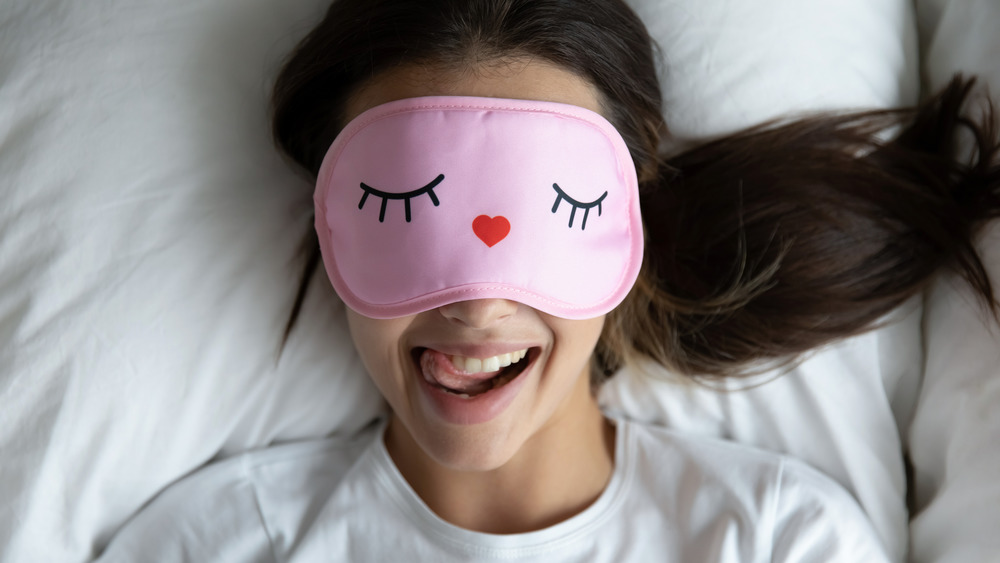
Shutterstock
In a 2024 study of sleep myths, the statement “during sleep the brain is not active” scored a high marks for falseness. Yes, just because you’re lying there all night doing nothing, that doesn’t mean nothing’s going on inside your head. The truth is, your brain is up to all sorts of mental shenanigans. Among other things, the researchers in the aforementioned study found that sleep helps the brain get rid of waste material, note the authors of the above study. A 2024 study in the Journal of Neuroscience suggests that sleep may help the brain remove proteins associated with Alzheimer’s disease.
Additionally, deep sleep restores the brain’s ability to learn new things, a 2024 study in Nature Communications showed. Deep sleep also activates a part of our brain that regulates emotion, helping to keep anxiety in check, according to research cited by ScienceDaily. And then of course there’s dreaming — research suggests that actions performed in a dream can activate the same areas of the brain that would be active if you were performing them while awake.
Myth: Older people need less sleep
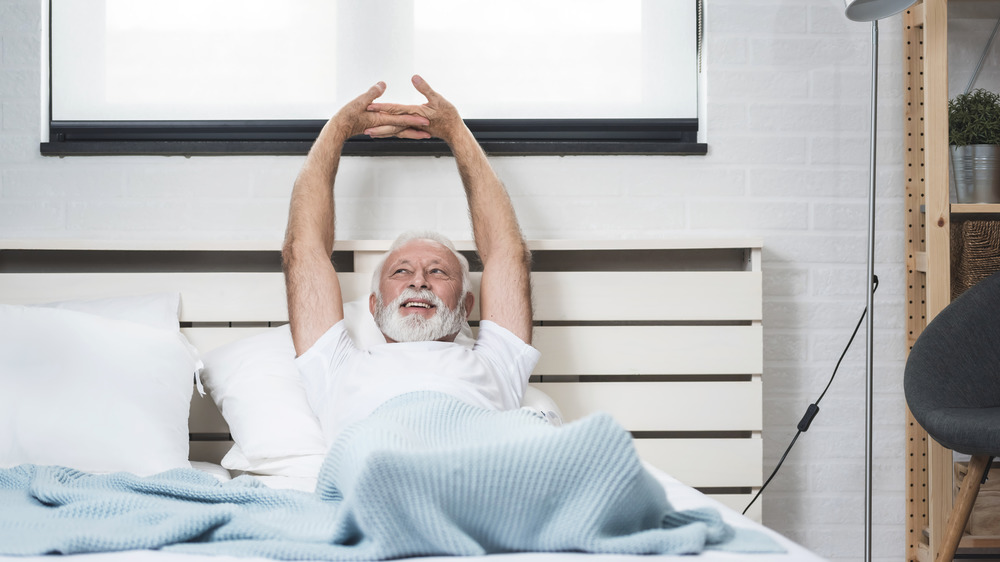
Shutterstock
Your granddad may like to get up at the crack of dawn so he can get to the diner for the early bird special, but that doesn’t mean he can get by with less sleep than you can. The National Sleep Foundation recommends that all adults get at least seven hours of sleep, whether or not they collect social security or carry and AARP card.
“At this point, we do not have enough data to suggest that older adults need less sleep than younger adults,” said Raman Malhotra, a neurologist, sleep medicine specialist, and spokesperson for the American Academy of Sleep Medicine, to Health Digest. “We still recommend that older adults try and get at least seven hours of sleep.”
However, sleep habits may change with age, the expert noted. Given the same amount of time in bed, older people take longer to fall asleep and sleep for less time than younger people do. This might have less to do with how much sleep is needed and more to do with underlying medical conditions, or medications, that are more common in older adults.
Myth: Teenagers sleep too much
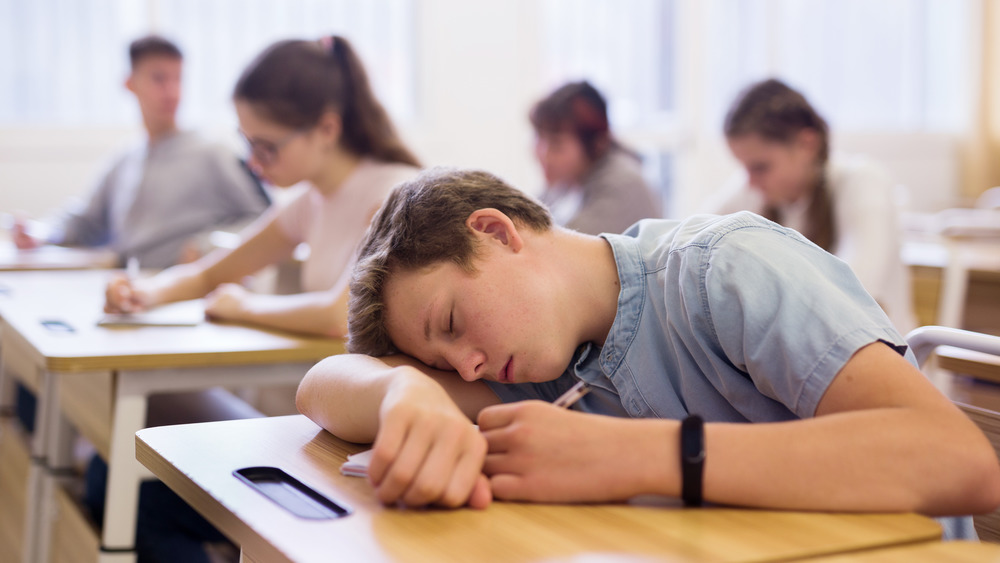
Shutterstock
You might take issue with your teen’s choice of music, clothes, or their insistence on questioning authority, but one thing that a teen in your life probably isn’t guilty of is sleeping too much.
According to data published in Sleep Medicine in 2024, the sleeping habits of adolescents suggest that they’re about 17 percent more likely to get fewer than seven hours of sleep per night compared to kids of that age six years prior. This is particularly bad news, the researchers said, because children aged 12 to 17 need more sleep than adults do; their growing brains actually call for a little over nine hours of sleep per night.
According to Johns Hopkins Medicine, this is because both the brain and body experience a spurt of development during adolescence. In fact, the American Academy of Pediatrics has recommended that schools move to a later start time — 8:30 a.m. — for this very reason.
Myth: It’s okay to watch TV or scroll through your phone before bed
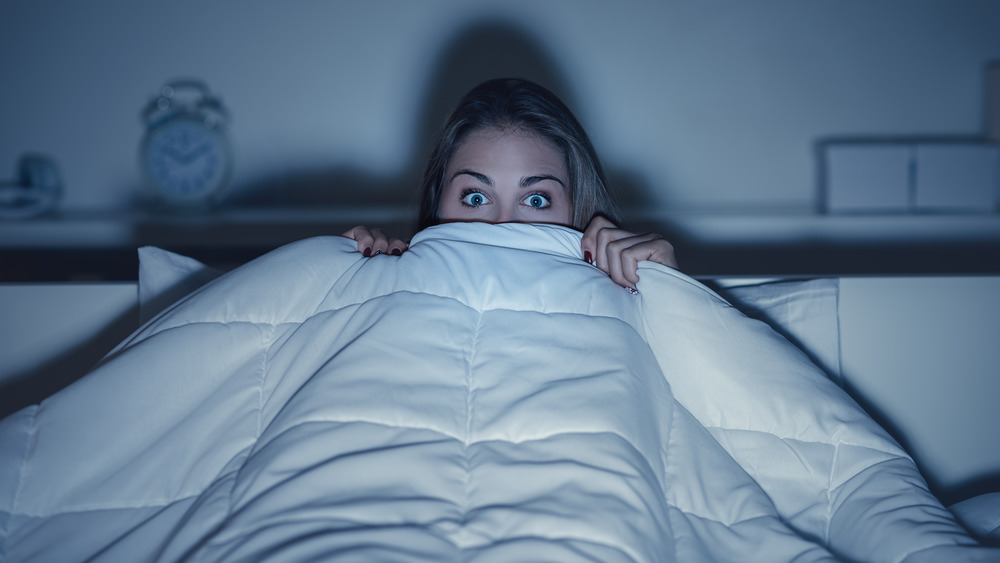
Shutterstock
You know how it goes: You settle into bed and curl up with your phone or laptop, and the next thing you know it’s 3 a.m. But our digital devices not only take up time that should be used for sleeping, they can actually sabotage our ability to achieve restful sleep. The cause seems to be the short wavelength or blue light that TVs, phones, and other digital screens emit (via Harvard Health Letter).
A 2024 study published in Chronobiology International found exposure to these light sources before bed was found to increase the time needed to fall asleep. Blue light also reduced sleep duration, increase the number of awakenings in the night, and decreased the time spent in deep sleep.
Another screen-related hazard to avoid: binge-watching TV before bed. A survey by the American Academy of Sleep Medicine found that 88 percent of adults admitted to losing sleep due to saying up late to watch multiple episodes of a TV or streaming series. Take breaks between episodes so you don’t get caught in an auto-play loop, and schedule time on the weekend to catch up on shows instead of binging them just before bed.
Myth: Naps can make up for lost sleep
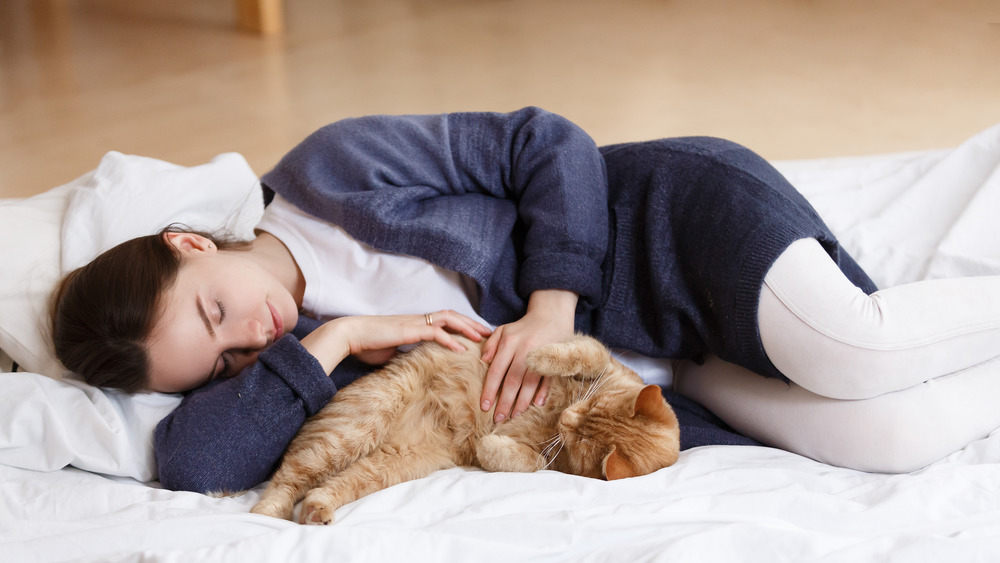
Shutterstock
The allure of a cozy catnap on the couch can be hard to resist. Should you give in? According to the American Sleep Association, a nap can be a positive thing. (Come on, you didn’t really think we’d be anti-nap, did you? What’s next, opposing puppies?) A nap can relieve stress, improve your mood, boost creativity, and improve job performance. But there are a few things to know about naps.
Per the American Sleep Association, you should keep your naps short. A nap that’s longer than 20 minutes could leave you feeling groggy and disoriented after deep sleep. Avoid late naps. Napping too late in the day could make it harder for you to fall asleep that night. Early afternoon naps work well; it can be hard to nap in the morning since you haven’t been awake for very long. Don’t rely on napping to help you sleep at night. In a 2024 Sleep Health survey, experts noted that people with insomnia should be discouraged from napping because it can reduce the body’s drive for sleep at night, perpetuating your sleeping trouble.
Myth: Skipping sleep is manly
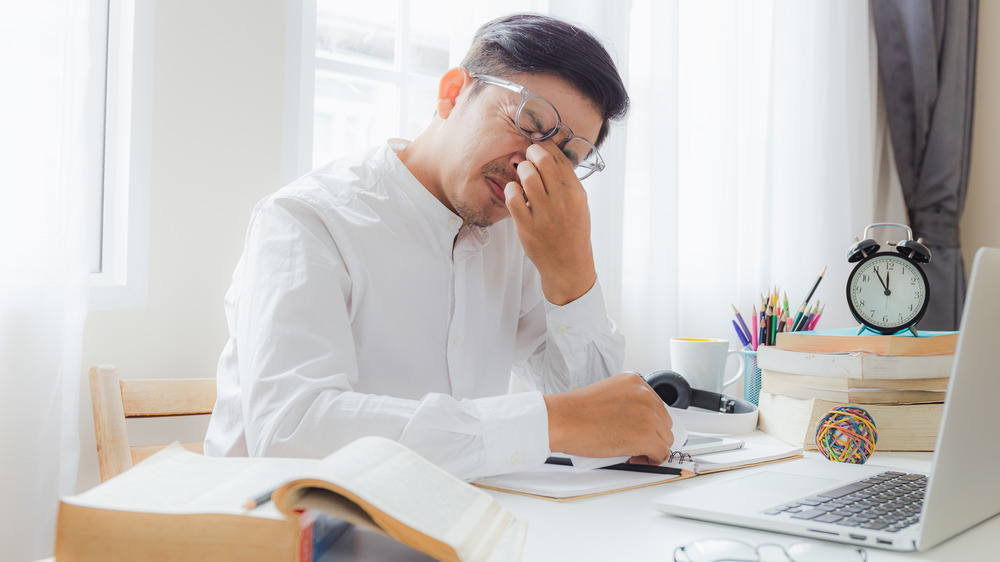
Shutterstock
Ever seen a couple of guys #humblebrag to each other about how busy they are, and how much sleep they have to sacrifice to get stuff done? You’d think pulling an all-nighter was an act of manliness on par with rasslin’ an alligator. But science says otherwise. Not only did a study in The Journal of Clinical Endocrinology & Metabolism find that testosterone levels increase during sleep and decrease after waking, a JAMA study revealed that men who’d restricted their sleep (five hours per night) for just one week experienced a daytime drop in testosterone levels by 10 to 15 percent. For comparison, normal aging produces a drop of 1 to 2 percent annually.
This prevalent “sleep-deprived masculinity stereotype” encourages men to sleep less despite the health problems that result. It also contributes to toxic masculinity, since men who are low on sleep tend to be more aggressive, according to the authors of a study on the topic.
Plus, in terms of “getting stuff done,” sacrificing your sleep to have more work time doesn’t make economic sense. According to research by the Rand Corporation, the U.S. loses up to $411 billion a year, and 1.23 million work days due to the effect that insufficient sleep has on health, well-being, and productivity.

